A Guide to
research-based GRADUATE
PROGRAMS AND CAREERS
TABLE OF
CONTENTS

WHERE ARE YOU IN YOUR RESEARCH CAREER?
To become a future leader in research, the best move to make is to enroll in a collaborative, inclusive, and cutting-edge graduate degree program that will serve as a launching pad for your dream career.
At West Virginia University, we are passionate about perpetuating a strong commitment to high research activity. In fact, we are one of the best research universities in the country — boasting R1 status that firmly establishes us as a thought leader in myriad fields of study.
Whether you are pursuing a master’s or a doctorate degree, we are here to outline how an advanced research program can help prepare you for professional success in academia and beyond — start exploring now.

what is research-based Academia?
A research-intensive graduate program focuses on the creation and application of new knowledge. Research plays a critical role in academia because it is the avenue through which we envision new ideas, transfer knowledge to one another, and predict trends that will impact the world.
Research enacts tangible change in diverse industries.
Students in a research-intensive graduate program develop skills as an independent thinker and professional within their discipline of study. This kind of training along with research collaboration prepares students for a life of inquiry, leading to a deepening of our collective understanding of the world around us.
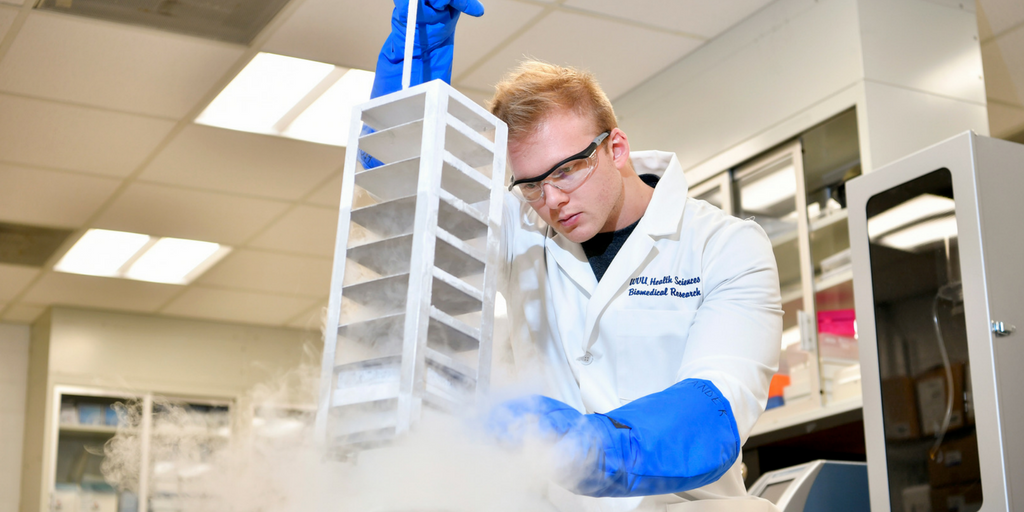
UNDERSTANDING THE VALUE AND BENEFITS OF RESEARCH IN GRAD SCHOOL
A research-based graduate degree program is designed to provide the student with a foundation from which they can either pursue additional graduate-level credentials in the form of a doctorate degree or develop the skills necessary to advance more quickly in their industry of choice.
One of the ways that a research-intensive graduate degree prepares professionals for cutting-edge leadership positions is through research collaboration. Research collaboration — that is, research between disciplines — provides “opportunities for investigators to learn how approaches from complementary disciplines may be applied to existing problems, and lead to the development of innovative solutions” for all fields of study involved.
In other words, collaboration between researchers is crucial because it leads to novel, cutting-edge solutions or answers to complex, challenging problems.
Here are just a few of the career fields that require or benefit from research-based graduate degrees:
medicine
public health
healthcare
exploration
In addition to developing students as innovators in their field, there are a variety of benefits to participating in a research-heavy graduate program. For instance, students pursuing a research-intensive graduate program can expect to:
1
Develop
INVALUABLE CRITICAL THINKING SKILLS
Critical thinking skills are essential to any industry, not just research-based professions, but these specific skills give students self-awareness, open-mindedness about their work, and the ability to collaborate across fields of study.
2
Provide
IMPORTANT, IN-DEPTH PERSPECTIVES
Students learn to explore and discuss multiple perspectives, worldviews, social justice, and cultural norms.
3
Exercise
CREATIVE-MINDED SOLUTIONS
While factual information is the focus, students must form innovative perspectives on their research topic and envision solutions to pressing challenges in their field.
4
Strengthen
TRANSFERABLE COMMUNICATION SKILLS
By working together in an interdisciplinary manner, students learn to communicate by practicing skills needed to effectively convey and receive information to various populations.5
Prepare
PROFESSIONALS FOR CAREERS IN EMERGING, CUTTING-EDGE FIELDS
Thanks to research, there are many advancements in technology, engineering, medicine, and many other scientific industries. Research-intensive programs also help students to prepare for careers in new and emerging fields.
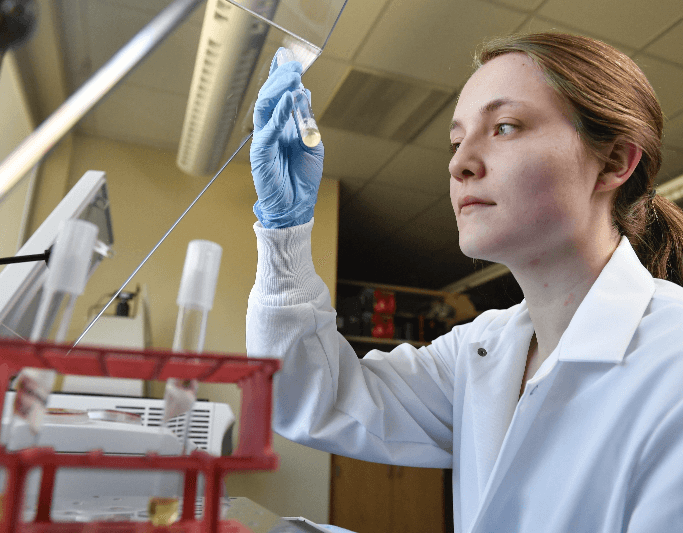
WEST VIRGINIA UNIVERSITY: A CARNEGIE R1 STATUS INSTITUTION
The Carnegie Foundation for the Advancement of Higher Education has classified approximately 146 U.S. institutions as having R1 status. R1 universities are at the forefront of research and innovation, and they receive federal or private funding specifically for their academic research.
R1 institutions are recognized as the best research universities in the country —
And west virginia university is one of them
At R1 institutions, research study spans the academic spectrum at these universities, engaging grad students with research opportunities from the creative arts and humanities to the social sciences and applied sciences.
- R1 institutions graduate more doctoral students than R2 institutions.
- R1 institutions receive significantly more funding than R2 institutions.
- R1 institutions produce more accomplished researchers than R2 institutions.
Students at Carnegie R1 institutions have the opportunity to engage in research at the forefront of their discipline. Students at R1 universities also work with faculty who remain active in the discovery of knowledge and who bring the latest findings from their research and that of their colleagues into the classroom.
Students who graduate with a degree from an R1 institution have the most current understanding of the state of the art in their major field of study.
In other words, R1 classified schools are up-to-date with the most recent findings and trends impacting that area.
“It’s the graduate students that drive the research enterprise at WVU. They’re the ones doing the frontline work, the research in the labs, and the creative activity in our studios.
Our students and the faculty they work with are engaged in scholarship at the cutting-edge of their disciplines. They are creating new knowledge — looking at what has been discovered and making their own discoveries.
At WVU, students can expect to go out and be a leading scholar in their area, and they will be on the forefront of the next generation of people who are discovering great new ideas and changing and shaping the world.
My biggest piece of advice for prospective graduate students at WVU, explore the faculty and think about who you would want to work with. At WVU, you will go through a huge transformation, where you’ll move from being the student to being the professional — and then you’ll be ready to make a mark on the world.”
—Dr. Fred King, Vice President for Research
at West Virginia University
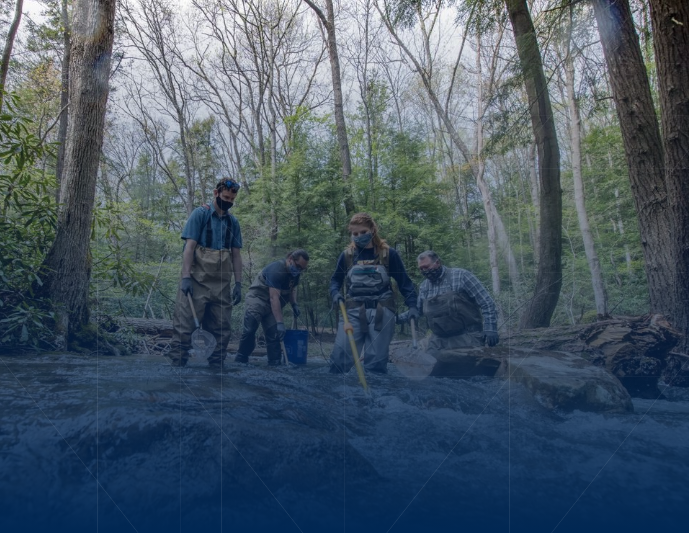
TOP RESEARCH-BASED GRADUATE PROGRAMS
All PhD programs and many MA and MS programs at WVU are research-based. Here are some sample research-based programs for your review:
Public Health
A Master of Public Health degree is a multidisciplinary professional degree focused on the application of science, research and theoretical knowledge toward the prevention of disease....
Public Health
A Master of Public Health degree is a multidisciplinary professional degree focused on the application of science, research and theoretical knowledge toward the prevention of disease. The WVU MPH program prepares students for promising careers providing evidence-based solutions to complex health issues. Graduates leave our program with the skills necessary to work in a variety of public health settings such as health departments, clinics, and federal agencies.
Read More
View Program PageMechanical and Aerospace Engineering
The Department of Mechanical and Aerospace Engineering offers programs in mechanical and aerospace engineering for students to earn bachelor's, master's, and...
Mechanical and Aerospace Engineering
The Department of Mechanical and Aerospace Engineering offers programs in mechanical and aerospace engineering for students to earn bachelor's, master's, and doctoral degrees. Students have the option to perform research in interactive settings under the direction of our exceptional faculty. MAE focuses research primarily in the areas of aerodynamics and fluid mechanics; alternative fuels, engines and emissions; bioengineering; control, design and manufacturing; materials science; solid mechanics, materials and structures; robotics; space flight and systems; and thermal sciences.
Read More
View Program PageNeuroscience
The doctoral program in Neuroscience is committed to training the next generation of researchers and educators. Successful completion of degree requirements is based on research and...
Neuroscience
The doctoral program in Neuroscience is committed to training the next generation of researchers and educators. Successful completion of degree requirements is based on research and scholarly achievement. Students will have opportunities to experience and acquire the skills needed for successful careers as independent scientists, including critical thinking, problem solving, writing, public speaking, and leadership.
After completion of core coursework, students conduct an original research project culminating in a doctoral dissertation. Research experiences include evaluating scientific literature, identifying critical scientific issues, experimental design, grant and manuscript writing, publication of scientific papers, and presentations at national meetings.
Read More
View Program PagePolitical Science
The Department of Political Science provides a comprehensive curriculum that leads to a Master’s Degree (MA) or to a Doctor of Philosophy (PhD). Students receive training in...
Political Science
The Department of Political Science provides a comprehensive curriculum that leads to a Master’s Degree (MA) or to a Doctor of Philosophy (PhD). Students receive training in research methods and choose from courses taught by renowned faculty in American politics, comparative politics, international relations, political theory, and public policy. More specifically, PhD students specialize in American politics, comparative politics, international politics, or public policy.
Read More
View Program PageMany doctoral students from our department have obtained tenure track positions at colleges and universities including the University of Pittsburgh, West Virginia Wesleyan College, Longwood University, Monmouth University, and Wright State University. Graduates from our PhD and MA programs have also found employment with government agencies and non-profit organizations, such as the Federal Bureau of Investigation, the National Institute for Occupational Safety and Health, and the U.S. Department of State.
Here are a few other graduate degrees that are rooted in research:
Computer Science
View Program PageEconomics
View Program PageBusiness Data Analytics
View Program PageAnimal, Food, and Nutrition Sciences
View Program PageChemistry
View Program PageMental Health Counseling
View Program PageDevelopmental Biology
View Program PageForestry
View Program PageHigher Education Administration
View Program Page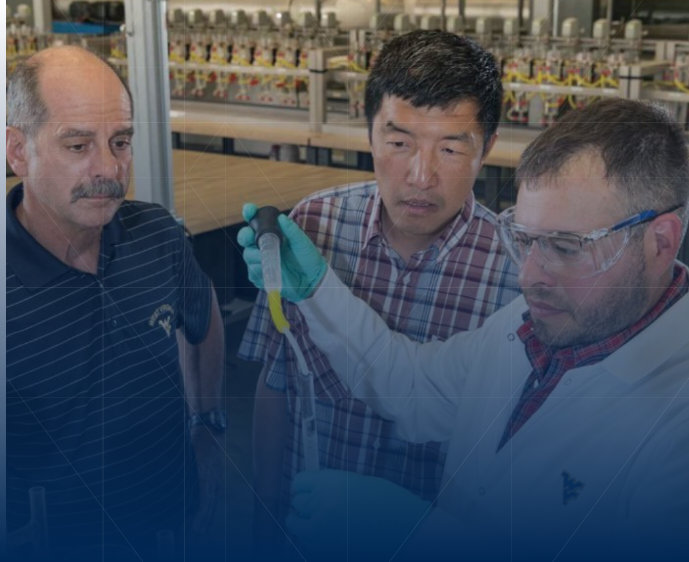
WVU’S RESEARCH ACHIEVEMENTS
- The Blanchette Rockefeller Neurosciences Institute, the world’s first institute devoted to the study of human memory, is at WVU.
- By the end of 2021, WVU had received a record-shattering $203 million in external funding for research and other sponsored programs.
- 70 = Total number of WVU Fulbright Scholars.
- 19 WVU faculty members have been named Carnegie Foundation Professors of the Year.
- The total number of sponsored expenditures for FY 2020 was $172 million.
WVU
Faculty expertise
The faculty employed at WVU are experts skilled at guiding graduate students to share in their expertise.
3,244
Faculty who actively perform research in their respective fields
85%
Full-time instructional faculty hold the highest academic degree in their field
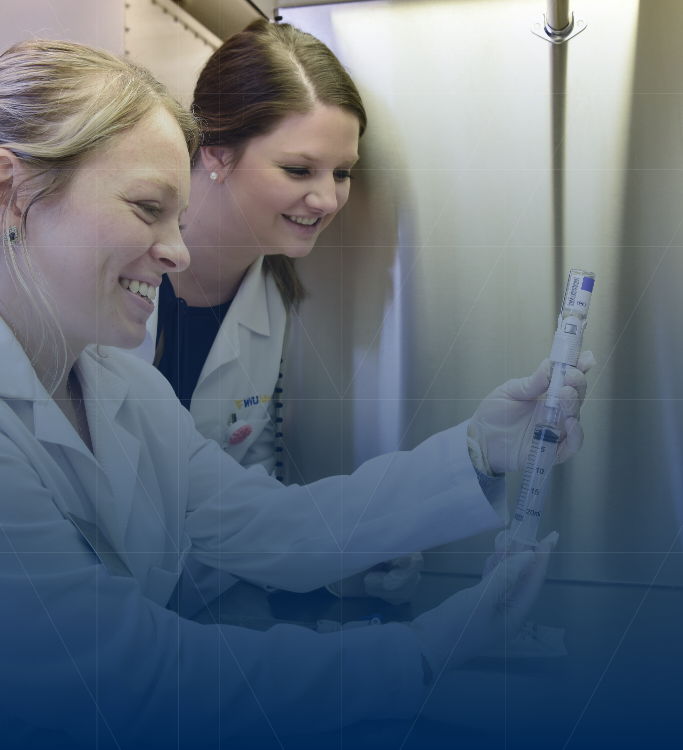
HOW TO BECOME A GRADUATE ASSISTANT AT WVU
Graduate assistantships are a form of academic employment for which students must apply and be accepted based on academic excellence and faculty referral. Graduate assistants receive a tuition waiver based on the tasks they perform for faculty members or departments.
In addition to payment, graduate assistantships are a strategic way for doctorate and master’s degree students to gain practical field experience, deepen academic understanding, and network with thought leaders and students in their field.
Graduate Assistantships
For researchers at wvu
West Virginia University awards approximately 1,600 graduate assistantships annually to incoming and continuing graduate students. All graduate assistants must be accepted into a graduate degree program and are required to be enrolled full-time while employed during the fall and spring terms (9 credits or more). Those committed to a research-intensive program will ideally choose a graduate research assistant position.
- Graduate teaching assistants teach courses, laboratory sections, and recitation sections, or provide other forms of instructional assistance.
Note: Research assistantships are primarily funded by grants and other third party sources. Because the arrival of these funds at the University may not coincide with the beginning of an academic term, University policy is that the deadline for research assistant appointments is no later than the end of the fifth week of classes in the fall or spring term. Depending on the source of funding, some research assistantships may not be available to non-US residents.
While students enrolled in a research-heavy graduate program will more than likely choose a graduate research assistantship, WVU does offer two other kinds of graduate assistantship positions for qualified students:
- Graduate teaching assistants teach courses, laboratory sections, and recitation sections, or provide other forms of instructional assistance.
- Graduate service assistants typically work in one of the administrative or service offices of WVU in positions related to their program of study and that contribute to their educational experience.

READING FOR ASPIRING RESEARCHERS
START YOUR RESEARCH
JOURNEY AT WVU
Connect With Us
At West Virginia University, we are dedicated to producing the next generation of research leaders who can make a tangible difference in myriad industries.
We foster a community of inclusivity, academic excellence, and cutting-edge innovation with the aim of graduating invaluable, marketable professionals who go on to impact the world and the people in it.
Are you ready to join a community of changemakers at WVU?
You are in the right place. Start your journey today!
Connect with us and take advantage of our resources:
Start your journey at WVU today










.png?width=600&height=338&name=NoPath%20-%20Copy%20(9).png)








